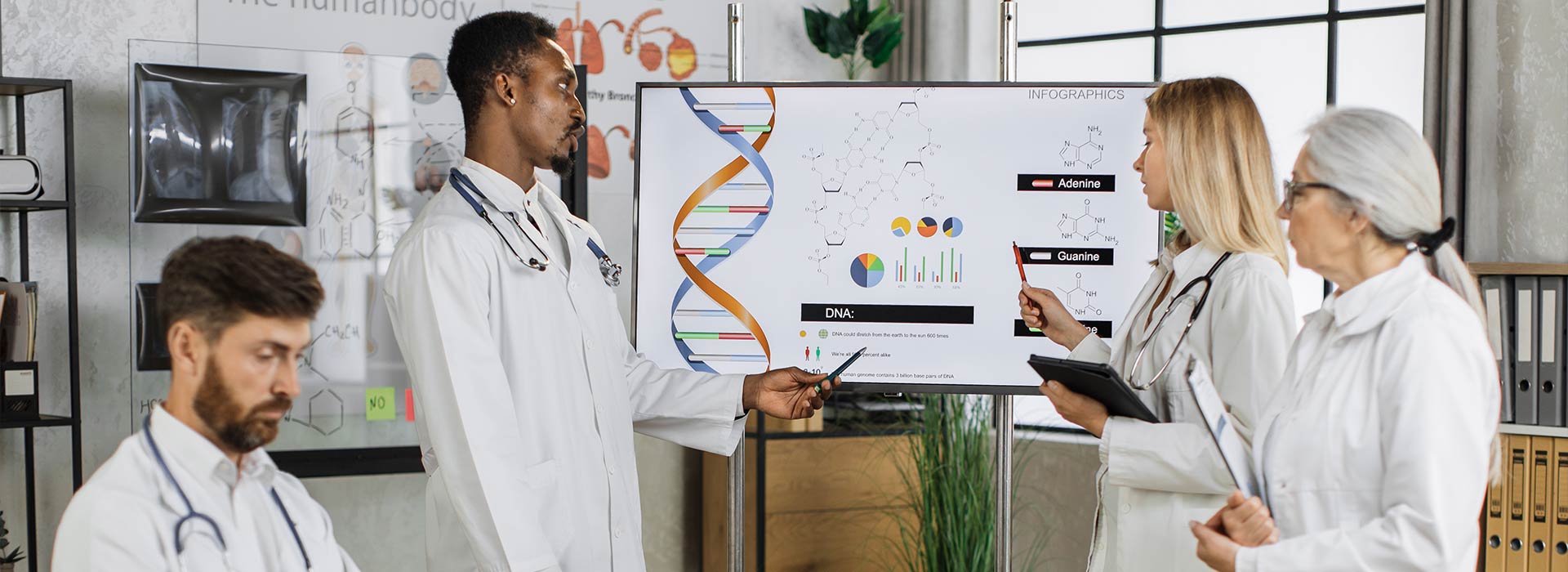Last Updated on April 29, 2024
Clinical trials are crucial for evaluating the efficacy, safety, and suitability of new treatments, equipment, and pharmaceuticals. Additionally, they play a vital role in testing these interventions for various diseases and medical conditions. However, despite having different definitions, many people use the terms efficacy & effectiveness in clinical trials. Moreover, this practice needs to be clarified among researchers and participants alike. Clinical trial sponsors must grasp the differences between the two phrases, efficacy vs effectiveness in clinical trials. Furthermore, this understanding is crucial because it significantly impacts data, insights, and the application of results.
What Does “Efficacy” in Clinical Trials Mean?
In clinical trials, “efficacy” refers to how well a treatment works. To put it briefly, efficiency endpoints are measurements meant to evaluate the intended effects of a medication. Precisely, it measures the desired impact on the patient group. Tests and observations are conducted in labs or clinics under expert supervision. Moreover, these explanatory trials help determine efficacy data in clinical trials.
What Does “Effectiveness” in Clinical Trials Mean?
Efficacy in clinical trials, while crucial, only tells part of the story. In contrast, a medication’s effectiveness sheds light on how well it performs in real-world situations outside the controlled environment of a lab. This real-world effectiveness is a valuable indicator of how the drug performs for patients in their everyday lives. For instance, when assessing the efficacy of vaccines, researchers go beyond the controlled trials and look at critical monitoring data collected after widespread use. Additionally, they analyze vaccination records from case-control studies, which compare vaccinated individuals to those who haven’t received the vaccine, to identify potential benefits and risks. Finally, extensive observational studies involving a broad population can provide further insights into the vaccine’s effectiveness in real-world scenarios.
Evaluating Case-Control and Observational Study Effectiveness
Case-control studies compare two groups of people. The first group, called “cases,” has a specific disease or condition. The second group, called “controls,” does not have the condition. Researchers can determine if an intervention might be effective by comparing these groups. After comparing the two groups in a case-control study, researchers can conclude. These conclusions focus on potential risk factors’ role in causing the disease. Case-control studies are beneficial for researching rare diseases. This is because they compare people who already have the condition with those who don’t. Additionally, these studies can assess the impact of past or current exposures on both current and former patients.
Observational studies follow people over time. These studies aim to see how certain things, like medications or daily habits, affect their health. Researchers also conduct long-term studies to see how treatments affect patients over time. This is very helpful because it gives a clearer picture of a treatment’s effectiveness in the long run. Moreover, instead of inferring causes from collected data points, researchers conduct observational studies to look for relationships and draw conclusions. Furthermore, they also examine how an intervention performs over time about baseline measurements made before adoption.
For What Reason Is it Important to Know the Difference Between Efficacy & Effectiveness In Clinical Trials?
Given that these two concepts of efficacy & effectiveness in clinical trials are not interchangeable, it is critical to comprehend their differences. For instance, if a vaccine were given to patients in perfect clinical settings, the outcomes indicate that the drug had a 90% efficacy, which suggests that the number of disease cases in the vaccinated group was 90% lower than in the placebo group. Consequently, this is quite favorable.
However, as efficacy does not always equate to effectiveness, the same medication may produce different results in real-world patients than in the controlled experiment. Moreover, environmental factors, such as the patient’s health status, compliance with recommended therapy, or lifestyle choices that could impede the medication’s intended effect, could significantly reduce its efficacy data in clinical trials.
What Are Some Variables That May Impact Efficacy & Effectiveness In Clinical Trials?
Several factors can affect efficacy & effectiveness in clinical trials. These include the kind of medication or intervention under test, the study’s sample size, the caliber of the data gathered and examined, the length of the investigation, the study’s design’s blinding effects, and the presence of any bias or confounding variables. Moreover, extrinsic variables like socioeconomic status or environmental factors can also have a significant impact on efficacy & effectiveness in clinical trials. Furthermore, these variables must be adequately controlled for a clinical trial to yield reliable results.
Glimpse of Factors That Affect Efficacy & Effectiveness In Clinical Trials
| Factors | Explanation | Impact |
| Patient Recruitment | Finding the right people for the trial takes time because this makes the results less reliable. | Not having enough of the right participants makes the study less valuable. |
| Study Design | Planning the study carefully helps get fair results. Moreover, this involves actively considering factors like the number of participants needed and the selection process. | Poor study planning can lead to biased results and affect the efficacy & effectiveness of clinical trials. |
| Adherence to Protocol | Participants need to follow the study rules for accurate results. Not doing so can mess up the data and affect the efficacy and effectiveness of clinical trials. | If participants don’t follow the rules, the results might not be accurate. |
| Data Collection and Analysis | Collecting and analyzing data carefully helps ensure the results are correct. Inadequately doing this can make the study less trustworthy. | Only accurate or complete data collection and analysis can lead to reliable results. |
| Funding and Resources | Having enough money and stuff helps run the trial properly. Moreover, Not having enough can slow things down or make them worse. | The study might not work well if there isn’t clinical trial compensation or stuff. |
| Regulatory Compliance and Ethical Standards | Following rules and being ethical keeps participants safe and the study honest. Moreover, not doing this can cause problems. | Violating regulations and ethical standards can have severe consequences. |
| Patient Engagement and Community Involvement | Getting patients and communities involved builds trust and helps more people join the study. Moreover, not doing this might make it hard to find enough participants. | Excluding patients and communities from the research process can make recruiting participants for the study difficult. |
Wrapping-Up
Clinical trials are necessary to create new medications, equipment, and treatments. They offer priceless information on efficacy & effectiveness in clinical trials, enabling trial sponsors to make deft choices about patient safety. Moreover, researchers can learn more about a treatment’s efficacy in ideal and real-world settings by conducting clinical trials. Furthermore, this helps guarantee that, before being generally accessible, any novel medicines are safe for patients.
Please contact Minerva Research if you have any questions concerning efficacy & effectiveness in clinical trials or if you would like to participate. With years of experience, our team of professionals can offer insightful advice on any topic related to clinical research, such as efficacy vs effectiveness in clinical trials. Reach out to us right now, and allow us to assist you in making well-informed choices about participating in clinical research.





